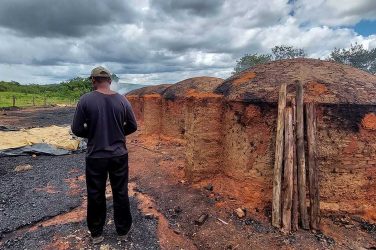 Brazil's textile and garment production sector ended the first month of 2009 with a trade balance deficit of US$ 47.2 million. Imports totaled US$ 66.9 million in textile products, against US$ 19.8 million exported. Despite the favorable exchange rates, the results for January do not yet reflect, following the exchange logics, the reduction of imports and the growth of exports.
Brazil's textile and garment production sector ended the first month of 2009 with a trade balance deficit of US$ 47.2 million. Imports totaled US$ 66.9 million in textile products, against US$ 19.8 million exported. Despite the favorable exchange rates, the results for January do not yet reflect, following the exchange logics, the reduction of imports and the growth of exports.
To give an idea, China – the main Brazilian import market -, shipped to the country, in the first month of the year, 48.6% more textile products and garments than in the same period in 2008.
According to figures supplied by the Sinditêxtil-SP, the growth in imports, despite the crisis, is the result of contracts closed six months ago. Therefore, purchases made before the crisis had their products shipped in November and clearance took place in January. The union believes that this growth should drop in coming months.
With regard to the halving of São Paulo state exports, the explanation is the recession in the United States and the protectionist measures promoted by Argentina, the two main destinations for Brazilian textile product exports.
According to Rafael Cervone, the president at the Sinditêxtil-SP, after the crisis China started adopting a price reduction strategy as a way to keep exporting.
"Brazil is one of the focuses for this production flow. We expected lower imports, but we may have a surprise with regard to the volume in coming months. In turn, other countries are adopting protectionist measures to make harder the entry of foreign products, with protectionist measures against Chinese sales," said Cervone.
"Our exports have already felt this barrier. All import licenses have been stopped in Argentina for 60 days," he added.
In January, São Paulo state exports of textile products and garments presented a 49.03% reduction in terms of value and 49.01% in volume, when compared to the same period last year. The main reductions affected textile fibres (- 54.28%), thread (-42.46%), filaments (- 59.40%), fabrics (- 60.97%), thread (- 66.04%) and garments (- 46.64%).
Imports, when compared to the month of January 2008, presented 11.36% reduction in terms of values and fell 29.76% in volume. Despite the general reduction, some imported products posted growth, among them garments (+ 50.41%), and bed, table and bath linen (+ 16.08%).
Chemical Products
Imports of chemical products by Brazil dropped 55.7% in January this year when compared to the same month in 2008, according to figures disclosed by the Brazilian Chemical Industry Association (Abiquim). The volume was 1.2 million tonnes. In terms of values, the purchases totaled US$ 1.9 billion and the reduction was 23.7%.
The purchases of intermediaries for fertilizers, one of the main products in the import basket, dropped 77.8% in January in terms of volume. Imports, in the first month of this year, totaled 299,000 tonnes. Revenues were US$ 156.2 million.
According to Abiquim, the reduction in imports was due to the lower domestic demand and to credit restrictions in the global market.
Brazilian exports in the sector also dropped. Brazil exported 681,400 tonnes of chemical products in January this year, a reduction of 19% over the same month last year. Revenues totaled US$ 614.7 million, 34.5% less than in January 2008. The sector trade balance deficit was over US$ 1.3 billion.
Thermoplastic resins were the products most bought by Brazil in January, with 114,800 tonnes. In this case, however, there was growth of 32.5% over the same month in 2008. Sales totaled US$ 96.5 million.
Anba




